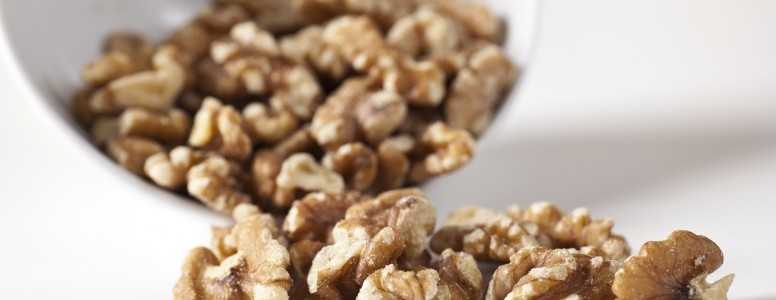Eating a good helping of walnuts each day could help to reduce hunger according to a new study.
Researchers from the Beth Israel Deaconess Medical Center have demonstrated that the nut may help to quell hunger. As a consequence, walnuts appear to be useful in preventing obesity and possibly type 2 diabetes.
Consuming them sets off a part of the brain linked to the regulation of hunger and cravings, according to the research published in the Diabetes, Obesity and Metabolism journal.
Dr Olivia M Farr, who was involved in the study, said: “We don’t often think about how what we eat impacts the activity in our brain. We know people report feeling fuller after eating walnuts, but it was pretty surprising to see evidence of activity changing in the brain related to food cues, and by extension what people were eating and how hungry they feel.”
The study involved 10 obese people being given prescribed diets over two sets of five-day sessions and living at the research centre during these periods. This ensured that they did not consume any non-prescribed food or drink which can easily happen in studies when people are living outside of research centres.
Over the course of the two five-day sessions, they were given two types of smoothies daily. One type of smoothie had 48 grams of walnuts, the amount suggested by dietary guidance published by the American Diabetes Associatio, while the other batch did not contain walnut but were designed to taste the same and have equal nutritional value.
The volunteers reported having a reduced appetite in the session where they had the walnut smoothies. At the end of each session a functional magnetic resonance imaging (fMRI) scan was used to look at the brain as the participants were shown images, some of foods including hamburgers and desserts as well as neutral items such as flowers and rocks and finally pictures of vegetables and other undesirable foods.
The results showed that a section of the brain known as the right insula was active when people who had consumed the walnuts were shown the foods considered to be highly-desirable.
Lead researcher, Professor Christos Mantzoros explained: “This is a powerful measure. We know there’s no ambiguity in terms of study results. When participants eat walnuts, this part of their brain lights up, and we know that’s connected with what they are telling us about feeling less hungry or more full.”
Now the research team plan to investigate whether increasing the amount of walnuts would lead to further activity in this part of the brain.
Walnuts are a very healthy food and provide the body with a strong balance of healthy fats, protein and other nutrients. Whilst the researchers are very excited about their findings, it is worth keeping things in perspective. Walnuts are likely to be one of a number of foods that are useful for helping us to feel satiated.
Diabetes.co.uk recommends that people maintain a lifestyle that’s based around natural foods, such as walnuts, and free from processed foods, especially refined grains and sugary foods.
For more on eating healthily, join the Low Carb Program which has helped thousands of people to get great control of their blood sugar levels through easy step-by-step guidance.
What's new on the forum? ⭐️
Get our free newsletters
Stay up to date with the latest news, research and breakthroughs.








